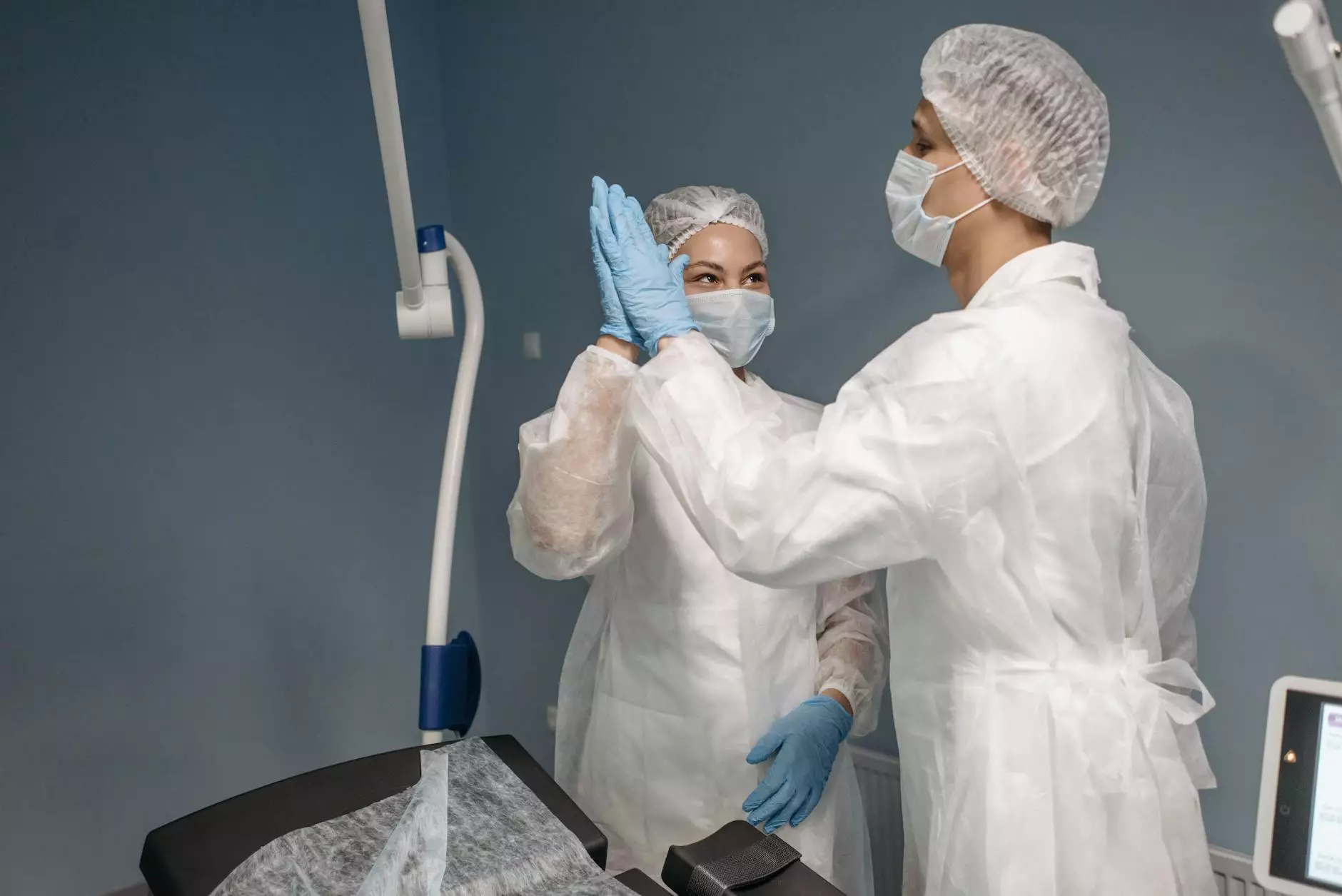Understanding the Role of Doctors Specialists in Surgical and Trauma Care

Doctors specialists surgical and trauma care represents a vital segment of the healthcare system, catering to individuals who experience life-threatening injuries and require immediate medical attention. In this comprehensive guide, we will explore what these specialists do, the various fields of their expertise, and how they contribute to patient well-being.
The Importance of Specialist Doctors in Surgical and Trauma Care
Surgical and trauma doctors play a critical role in emergency and elective care. Their expertise not only saves lives but also enhances the quality of life for patients undergoing significant medical procedures.
What Are Surgical and Trauma Specialists?
Surgical and trauma specialists are highly trained medical professionals who focus on treating injuries and illnesses through surgical procedures. They possess advanced skills in various surgical techniques and understand the complexities of trauma care. These specialists are typically found in emergency departments and trauma centers and work collaboratively within multidisciplinary teams to ensure comprehensive patient care.
Types of Surgical and Trauma Specialists
There are several types of specialists within the field of surgical and trauma medicine. Here are some of the most common:
- Trauma Surgeons: Experts in managing traumatic injuries, including those sustained in accidents, falls, and violence. They have specialized training in emergency surgery.
- Orthopedic Surgeons: Focus on diagnosing and treating musculoskeletal injuries, including fractures and joint injuries.
- Neurosurgeons: Specialize in the treatment of brain and spinal cord injuries. They perform delicate surgeries that require precision and extensive knowledge.
- Cardiothoracic Surgeons: Deal with injuries and disorders of the heart and chest area, often performing complex procedures like open-heart surgeries.
- General Surgeons: Provide a broad range of surgical care and can address non-trauma related issues that may require immediate intervention.
Key Skills of Surgical and Trauma Specialists
success in the field of surgical and trauma care hinges on a multitude of skills, including:
- Expertise in Emergency Response: Specialists must act quickly and effectively in high-pressure situations.
- Advanced Surgical Techniques: Mastery over various surgical procedures to treat injuries and conditions effectively.
- Critical Thinking and Problem-Solving: The ability to analyze complex cases and formulate effective treatment plans.
- Team Collaboration: Working closely with other healthcare professionals to provide holistic care to patients.
- Communication Skills: Effectively communicating with patients and their families about treatment options and procedures.
The Journey of a Trauma Patient
Understanding the patient journey in surgical and trauma care can provide insights into the critical role these specialists play. This journey typically includes several stages:
1. Initial Assessment
Upon arrival at the hospital, trauma patients undergo a rapid assessment by the trauma team. It includes a comprehensive evaluation of vital signs and physical injuries.
2. Stabilization
The priority is to stabilize the patient, addressing the most critical conditions first. This may involve life-saving measures such as airway management and IV fluid resuscitation.
3. Diagnostic Imaging
CT scans, X-rays, and other imaging techniques are utilized to identify injuries that require surgical intervention and to formulate a treatment plan.
4. Surgical Intervention
If necessary, the patient is taken to the operating room for surgery. Trauma surgeons are equipped to perform various procedures, from repairing broken bones to complex organ surgeries.
5. Post-Operative Care
After surgery, the patient will require ongoing monitoring and rehabilitation. Surgical specialists work alongside physical therapists and other healthcare providers to ensure optimal recovery.
6. Follow-Up Appointments
Lastly, follow-up appointments are essential to monitor healing, manage pain, and address any complications or additional treatments needed.
The Role of Communication in Surgical and Trauma Care
Effective communication is paramount in surgical and trauma care. Doctors specialists are responsible for explaining procedures clearly, ensuring that patients and their families understand the risks and benefits of various treatment paths.
Informed Consent
Prior to any surgical intervention, obtaining informed consent is essential. Surgeons must discuss:
- The nature of the operation.
- Possible risks and complications.
- Alternative treatment options.
Family Involvement
Involving family members in discussions about patient care helps alleviate anxiety and ensures everyone is on the same page regarding the treatment process.
Advancements in Surgical Techniques and Trauma Care
The field of surgical and trauma medicine is continuously evolving with innovative techniques and technologies. Here are some noteworthy advancements:
Minimally Invasive Surgery
Techniques such as laparoscopic surgery allow doctors to perform complex procedures with smaller incisions, resulting in less pain and quicker recovery times for patients.
Robotic Surgery
The introduction of robotic-assisted surgery enhances precision and control during operations, minimizing complications and improving outcomes.
Telemedicine
In cases where immediate consultation with a specialist is necessary, telemedicine has become an invaluable tool, connecting patients with experts remotely.
Choosing the Right Surgical and Trauma Specialist
When seeking care, it's essential to choose a qualified surgical and trauma specialist. Here’s what to consider:
- Board Certification: Ensure the surgeon is board-certified in their specialty, indicating they have met rigorous standards.
- Experience: Research the specialist's experience with your specific condition or type of surgery.
- Hospital Affiliation: Check the quality and reputation of the hospital where the surgeon practices.
- Patient Reviews: Look for testimonials and reviews from patients to understand their experiences and outcomes.
The Future of Surgical and Trauma Care
The future of surgical and trauma care holds promise with continuous advancements in medical science. Emerging technologies such as artificial intelligence, personalized medicine, and advanced imaging techniques are set to revolutionize patient outcomes and surgical precision.
Research & Development
Ongoing research is crucial in uncovering new treatment methodologies and improving current practices. Collaborative efforts between academic institutions and healthcare facilities foster innovation in this vital field.
The Impact of Interdisciplinary Teams
Taking a multidisciplinary approach brings together various specialists to address all aspects of patient care, enhancing recovery and outcomes. These teams may include:
- Physical therapists
- Psychologists
- Nutritional experts
- Occupational therapists
Conclusion: The Vital Role of Surgical and Trauma Specialists
In conclusion, doctors specialists surgical and trauma care are indispensable to the healthcare system. Their expertise and commitment save lives, foster recovery, and improve the quality of care for patients facing severe medical challenges. As advancements in technology and treatment evolve, these specialists will continue to play a pivotal role in delivering exceptional medical service.









